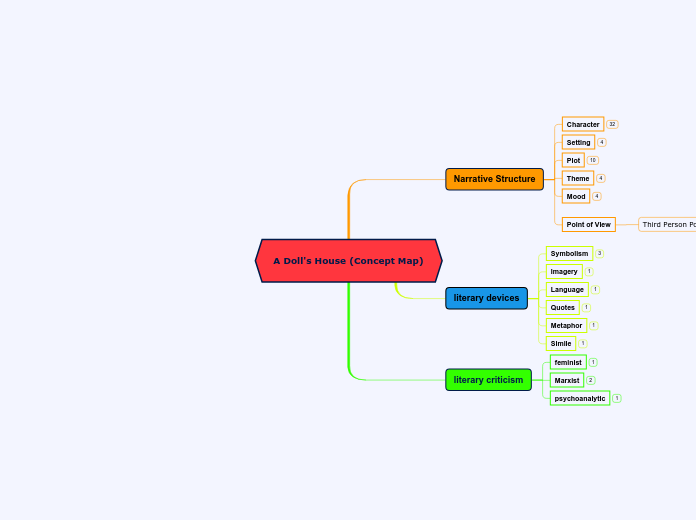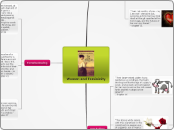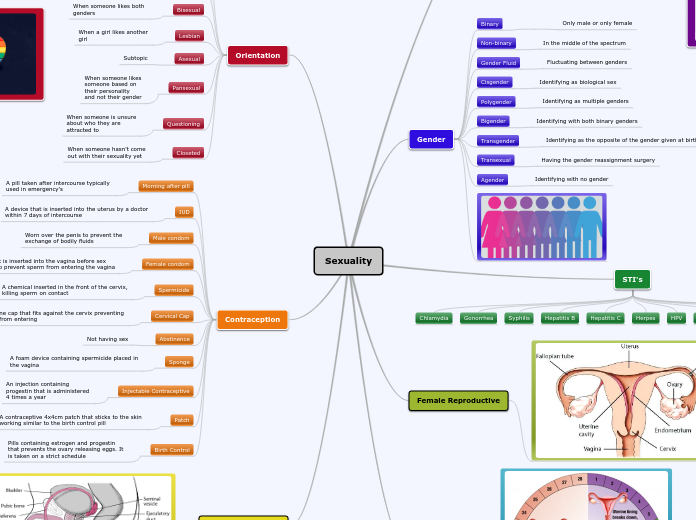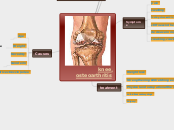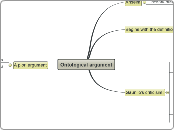A Doll's House (Concept Map)
The part of speech is a category to which a word is assigned according to its syntactic functions. In English the main parts of speech are noun, pronoun, adjective, determiner, verb, adverb, preposition, conjunction, and interjection.
literary criticism
An adverb is used to describe a verb, but it can also describe an adjective or another adverb.
Adverbs normally help paint a fuller picture by describing how something happens.
psychoanalytic
From the psychoanalytic point of view, Nora had been acting according to the superego that controls her mind. Since, the superego is based on the moral values one learns from the parents or society, Nora learnt about being obedient to her father and husband. She tried to save her marriage by not going against her husband since the women are supposed to listen to men in a male dominated society. It was her superego that prevented her from revolting in the beginning of the play.
Marxist
Nora had forged her dad's signatures to save her husband so she can get a loan.
According to Marxist approach,wealthy people have access to all amenities and power in a society.The rich people have control over the poor who have limited resouces The characters try their best to acquire wealth. Krogstad commited a crime which is forgery of signatures to support his children with money.
feminist
The intensifiers strengthen adverbs adjectives and adverbs and down- toners make them weaker.
The play portrays the restrictions that are imposed on women in a patriarchal society. Torvald restricts Nora from leading life her way and treats her like a child. Further, Nora always lives with the fear of ruining her married life due to the secret loan she took for her husband's treatment. Being a women, Nora is unable to lead a secured life whereas she is the one makes all the sacrifices when it comes to supporting her husband during bad times.
literary devices
A pronoun is a word that can be used in place of a noun, typically after the noun itself has already been stated.
Simile
Interrogative pronouns are used in questions. Although they are classified as pronouns, it is not easy to see how they replace nouns. Who, which, what, where, and how are all interrogative pronouns.
Simile is used when it is said, "play with me like a puppet".
Metaphor
Reciprocal pronouns are used for actions or feelings that are reciprocated. The reciprocal pronouns are each other and one another.
Metaphor is used when Nora calls her kids "little dollies".
Quotes
A reflexive pronoun ends with ...self or ...selves and refers to another noun or pronoun in the sentence (usually the subject of the sentence). The reflexive pronouns are myself, yourself, herself, himself, itself, ourselves, yourselves, and themselves.
"Nora, my Nora, that is just like a women". This quote clearly indicates that gender roles define an individual's personality
Language
Demonstrative pronouns are used to demonstrate (or indicate). This, that, these, and those are all demonstrative pronouns.
Colloquial language is used to make the play sound realistic and it is based on every character's personality.
Imagery
Possessive pronouns are used to show possession. The possessive pronouns are mine, yours, his, hers, ours, and theirs.
The play shows Christmas and New Year's time where everything is decorated and goes through a pleasant change which also includes the characters experiencing a change in their outlook
Symbolism
The personal pronouns are I, you, he, she, it, we, they. More often than not (but certainly not always), they replace nouns representing people.
The doll in the play signifies control excerised by men over women just the way people play with dolls and throw them after they are no more interested in them.
The macaroons that Nora eats, portrays her childish behaviour as she secretly eats them.
The Christmas tree in the play symbolizes celebration. Similarly, it symbolizes Nora and Torvald's happy married life.
Narrative Structure
A verb is an action word or 'doing' word that signifies movement in some way.
Point of View
Third Person Point of View
Ibsen has used the characters names in the play which justified that the play is written in third person point of view.
Mood
An auxiliary verb helps the main (full) verb and is also called a 'helping verb.' With auxiliary verbs, you can write sentences in different tenses, moods, or voices.
Stress
The mood throughout is stressed. Nora always lives with the fear that her husband, Torvald might find out about the loan she took for his treatment. Nora is never at peace due to the fact that Krogstad knows about her secret.
Mysterious
In the play, Nora appears as an innocent women who is oblivious of the struggles in life but in reality Nora has the intelligence to get a loan from Krogstad to save Torvald's life.
Theme
A participle is a verb form that can be used as an adjective or to create a verb tense. There are two types of participles: Present participle (ending -ing) and Past participle (usually ending -ed, -d, -t, -en, or -n).
Wealth
Obtaining wealth has been a major aim of Torvald and Nora as they struggle to go to italy and have always dreamt of a lavish life.
Marriage
The play is based on the theme of marriage which is supposed to be a relationship based on trust and respect. Initially, Nora ignored trivial insults by Torvald and tried to save their marriage by obeying him. However, Nora revolts at the end and leaves Torvald.
Plot
A modal is a type of auxiliary (helping) verb that is used to express: ability, possibility, permission or obligation. The main modal verbs in the English language are: can, could, may, might, must, shall, should, will, would.
Conclusion
Nora decides to leave her husband and children as she looked at Torvald as a strange man.
Falling Action
Nora realizes that she has been controlled by Torvald for her whole life. Torvald convinces Nora that he wil change his way but Nora plans to leave Torvald to lead a better life.
Climax
Torvald finally reads the letter and yells at Nora. She is surprised to find the true colours of Torvald and feels as if she was being controlled like a doll since marrige.
Rising Action
Krogstrad, who gave Nora the loan,came to tell her that he will tell Torvald how Nora got the money if she does not convince Torvald to not fire Krogstad. When Krogstad finds out that Torvald fired him, he places a letter in Torvalds mailbox stating that Nora forged illegal signature to get a loan. Nora tries to prevent Torvald from opening the mailbox and asks him to help her with dancing. Mrs.Linde and Krogstad start to get back together again.
Introduction
The play begins in a furnished living room where one of Nora's school friends named Mrs.Linde comes to meet Nora. During the conversation Mrs.Linde talks about how much harder is her life than Nora's life. Nora starts to tell Mrs.Linde how she illegally saved Torvalds life.
Setting
A linking verb connects the subject with a word that gives information about the subject, such as a condition or relationship.
A furnished living room
A furnished living room is a great setting in the play because it is a cozy place to spend time with family on a Christmas Eve.
Norwegian town, Circa in 1879
Character
A verb with its own meaning: a verb that is not an auxiliary verb.
Children
Ivar
Emmy
Bobby
Dr.Rank
Wealthy person
Suffering from tuberculosis
In love with Nora
Nils Krogstad
Fired from Torvald
Forged signatures
Loves Mrs.Linde
Mrs.Linde
Looking for a job
Widow
Nora's school friend
Torvald Helmer
Bank Manager
Nora's husband
Father of three children
Protective
Torvald treats Nora as her father would, he also makes sure to control Nora's macoroon eating habbit and protect her from any type of danger.
Nora Helmer
About
Mother of three children
Torvald's wife
Intelligent
Nora is mistaken to be a irresponible women with no knowledge of bank loans and finance, however, she manages to forge her fathers signature to get approval for the loan.
Greed
For the greed of money, Nora was ready to forge her father's signatures to obtain 250 pounds.
